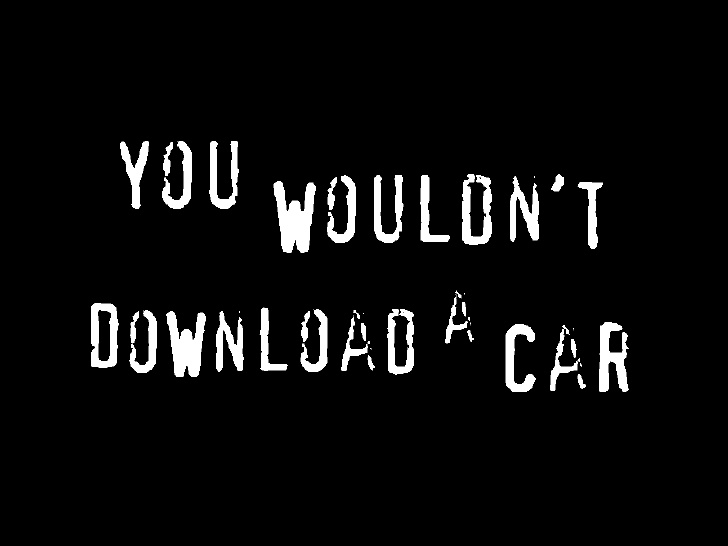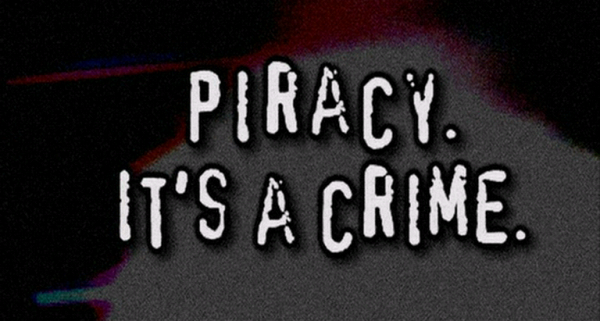I will preface this article by stating the obvious: stealing is wrong. Video game developers dedicate so much of their time to creating art for us to enjoy, and definitely deserve to be compensated for their efforts.
But wait, gimme a sec, hear me out here – it kind of sucks when video game developers and publishers treat their products as if they are only meant to be consumed within first-world nations. And sure, I can understand the fact that physical media may not be as profitable in some places, but there’s no reason I can think of that excuses the lack of a global digital storefront.

It shames me to say it, but yes, I would download a car. Because the economy is in shambles and cost of living has only gone up while wages have remained the same, leaving no room for millennials to build wealth like their ancestors. But that’s another story for another day.
My point is, that video games are supposed to be accessible. And it is understood that physical media is not accessible to everyone for various reasons. Which is why digital media is a thing! So, tell me, Nintendo, why is it that I cannot set my country to St. Vincent & the Grenadines and access anything in the eShop outside of updates for games? Surely, as a business, you would be okay with the idea of making, I don’t know, more money?
As I’ve said before in a [previous post], video games are really heckin’ expensive in the Caribbean, with handheld games selling for around $75 USD/€65 EUR and console games for around $100 USD/€87 EUR in some countries. This is due to import taxes, shipping and the profit stores need to make. One would imagine, then, that people who wish to buy games could just buy them digitally. Alas, this is not so. Fans must change their region to places like the U.S. or Canada and either pay with gift cards or use credit cards compatible with those eShop regions.
So yes, we technically can buy video games here, even if we have to jump through hoops. But it leaves out an important question: How will I know if I like the game before I buy it? What if I buy the game… and I don’t like it?
The beauty of physical media is that it is, well, tangible. I can use it and later give it to a friend to try out, if I so desire. I can also return a game to a store if I don’t like it, or sell it on eBay or Amazon. Those who have the option to buy either physical or digital media and choose to buy the latter are okay with foregoing the option to return or resell (although the fact that you cannot return a digital game is silly in and of itself).
But what about those who can only access digital media? Don’t they deserve to try games out, or return/resell a game they don’t like? Enter: Piracy. Look, man, I’m really sorry. Judge me if you want. When I was a young warthog, just out of high school, I had to make very calculated decisions about what I did with my money. The idea of buying a game for $40 or $60 in a country where the minimum wage is $166 USD per month is quite daunting. And yes, I do know that there are many people who pirate games they can actually afford, and I want to assure you that I actively condemn those people.
There is a stereotype about Germans which maintains that they follow every rule, both spoken and unspoken, to the letter. No cars in sight as you’re standing at a crosswalk? Don’t you dare cross that crosswalk if the streetlight is red. What influence are you having on the children if you disobey?! The world will fall into CHAOS!

It seems that I have inherited those very German traits from my father’s family. This is a good and bad thing, I suppose. When I played on my 3DS and Wii U heavily, I installed custom firmware (CFW) on both systems in order to keep backups of my digital save files, in the event that something were to happen to them. I knew of the option for piracy but was heavily against it. After all, I could just buy games I knew I’d like: Animal Crossing, Pokémon, Yoshi etc. I mean I wouldn’t want the world to fall into chaos, now.
But the more I got into these games, the more I became sad as I never wanted to take a risk and buy new games unless I was 100% sure I’d like them. I side-eyed sites that hosted files of games. Maybe I could try them out, and delete them if I didn’t like them. It would be the same thing as borrowing from a friend, right? My good friend, Mr. Freeshop.
So that’s what I did. I was able to download games, try them out, and delete them if I didn’t like them. And if I did end up liking them, I bought the game, because I wanted a chance to support the developers who made them. I was able to try out games like The Legend of Zelda: A Link between Worlds, and realise it wasn’t for me (sorry, y’all). But that was okay, because at least I didn’t spend a huge chunk of what little money I had for a game that I didn’t have a fair shot of trying out beforehand. I wish I had the option for the Switch that didn’t involve the risk of bricking, as I found out the hard way that Yoshi’s Crafted World was very, very inferior to its predecessor. Goodness, that stung. I even pre-loaded the game and didn’t get more than 5 hours out of it.
Of course, there are lots of game demos that sold me on games, like Octopath Traveller and Rhythm Heaven: Megamix. But not all games have demos, though I’d like for more to exist. I also know that my justification for piracy depends heavily on my own honour code, which many others don’t possess.
What do you think? Are you, or were you, a swashbuckling pirate too? Why or why not? Leave a comment! Thanks for reading.

Definitely a pirate of the caribbean, lol.
LikeLiked by 1 person